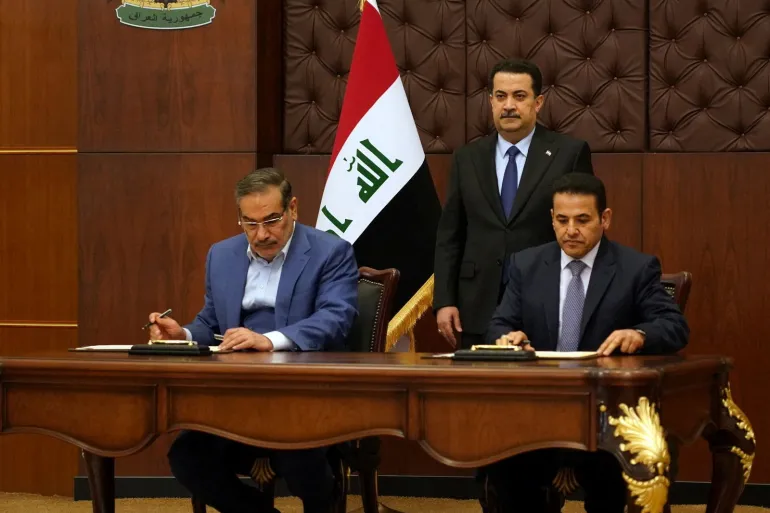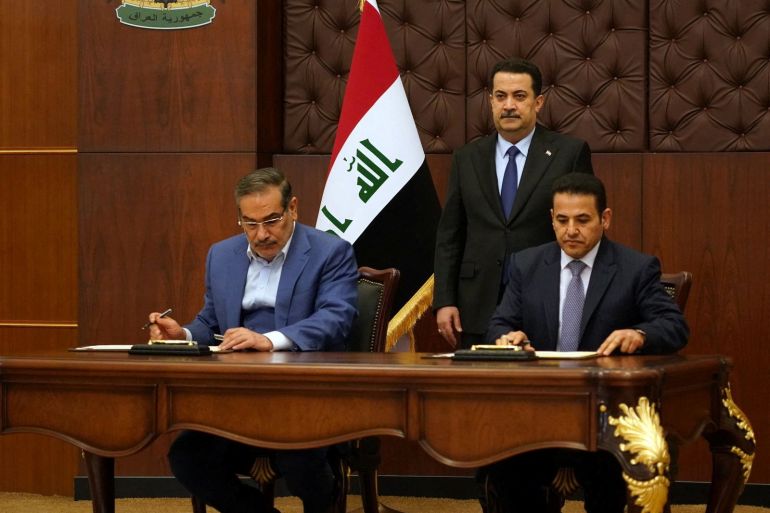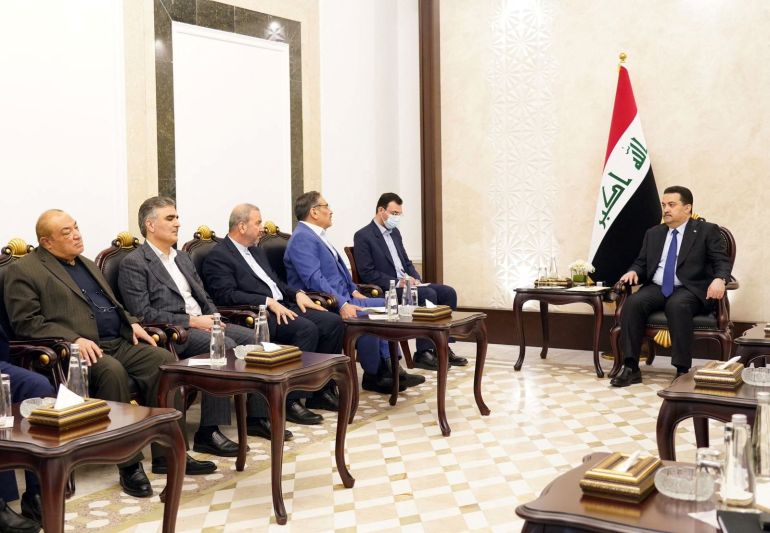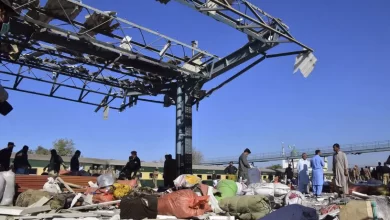Iraq and Iran sign deal to tighten border security

Iraqi officials say the move is aimed at tightening the frontier with Iraq’s Kurdish region, where Tehran says armed Kurdish dissidents pose a threat to its security.

Iraq and Iran have signed a border security agreement, a move Iraqi officials say is aimed primarily at tightening the frontier with Iraq’s Kurdish region, where Tehran says Kurdish armed groups pose a threat to its security.
Sunday’s joint security agreement includes coordination in “protecting the common borders between the two countries and consolidating cooperation in several security fields”, a statement from the Iraqi prime minister’s office said.
Iran’s Supreme National Security Council Secretary Ali Shamkhani signed the deal with Iraq’s National Security Adviser Qasim al-Araji, in the presence of Iraqi Prime Minister Mohammed al-Sudani, the prime minister’s office said.
“Under the signed security deal, Iraq pledges it would not allow armed groups to use its territory in the Iraqi Kurdish region to launch any border-crossing attacks on neighbour Iran,” said an Iraqi security official who attended the signing, according to the Reuters news agency.
Shamkhani denounced “vicious activities by counter-revolutionary elements” in northern Iraq, a reference to the Kurdish groups operating in the country, according to Iran’s state news agency IRNA.
He said the agreement signed on Sunday “can completely and fundamentally end the vicious actions of these groups”, which the Iranian government labels as “terrorists”.

Iraq’s semi-autonomous Kurdish region hosts camps and rear bases operated by several Iranian Kurdish factions, which Iran has accused of serving Western or Israeli interests in the past.
The frontier came into renewed focus last year when Iran’s Revolutionary Guards launched missile and drone attacks against Iranian Kurdish groups based in northern Iraq, accusing them of fomenting protests that were sparked by the death of an Iranian Kurdish woman while she was being held in police custody.
After the Iranian strikes, Iraq in November announced it would redeploy federal guards on the border between Kurdish Iraq and Iran, rather than leaving the responsibility to Kurdish Peshmerga forces – a move welcomed by Tehran.
Iranian Foreign Minister Hossein Amir-Abdollahian, speaking in Tehran, said “Shamkhani’s current trip to Iraq has been planned for four months and is focused on issues related to the armed groups in northern Iraq”.
Iran will in no way accept threats from Iraqi territories, he said.
Factions based in Iraq’s mountainous north have in the past waged an armed insurrection against Tehran, but in recent years their activities have declined and experts said they had ceased nearly all military activity.
Iran has also accused Kurdish fighters of working with its archenemy Israel, and has often voiced concern over the alleged presence of the Israeli spy agency Mossad in the autonomous Iraqi Kurdish region.
Last year, Iran’s Intelligence Ministry said a sabotage team detained by its security forces were Kurdish fighters working for Israel who planned to blow up a “sensitive” defence industry centre in the city of Isfahan.







